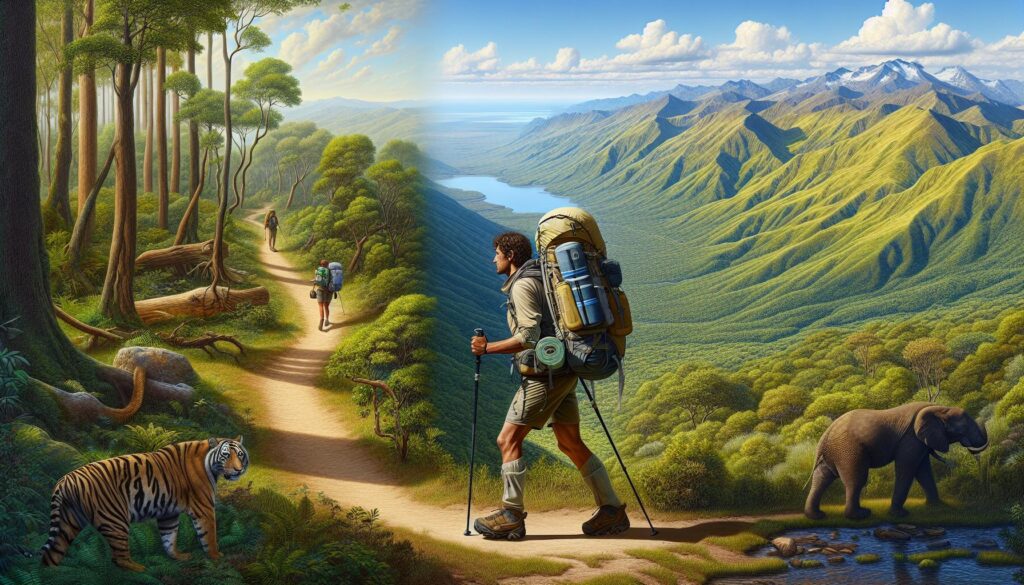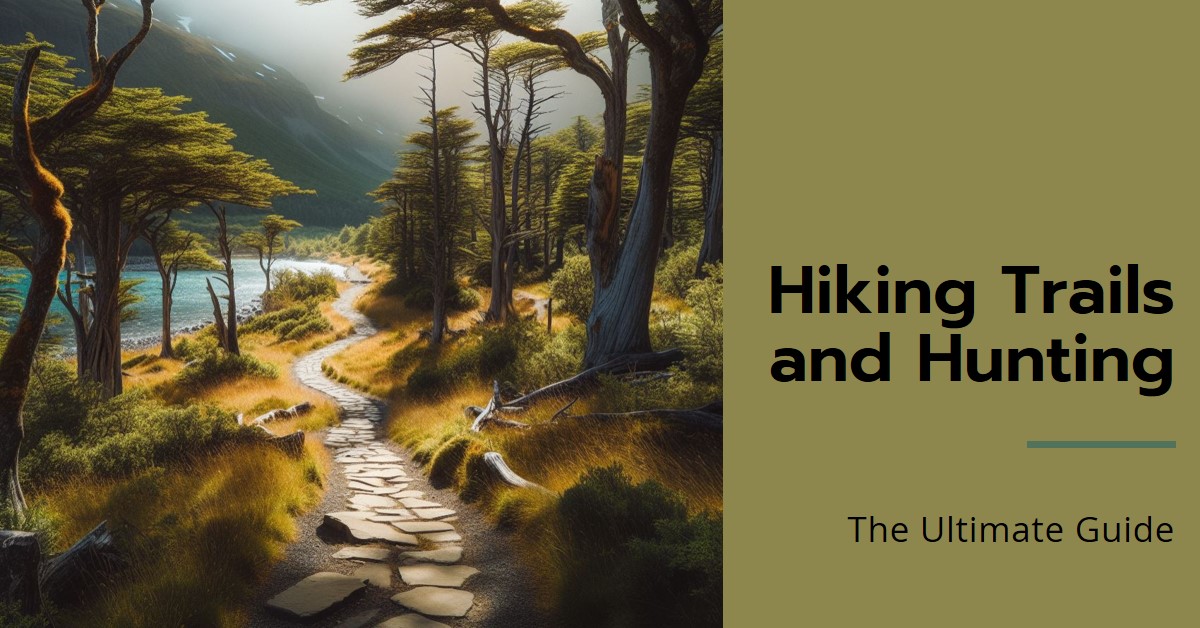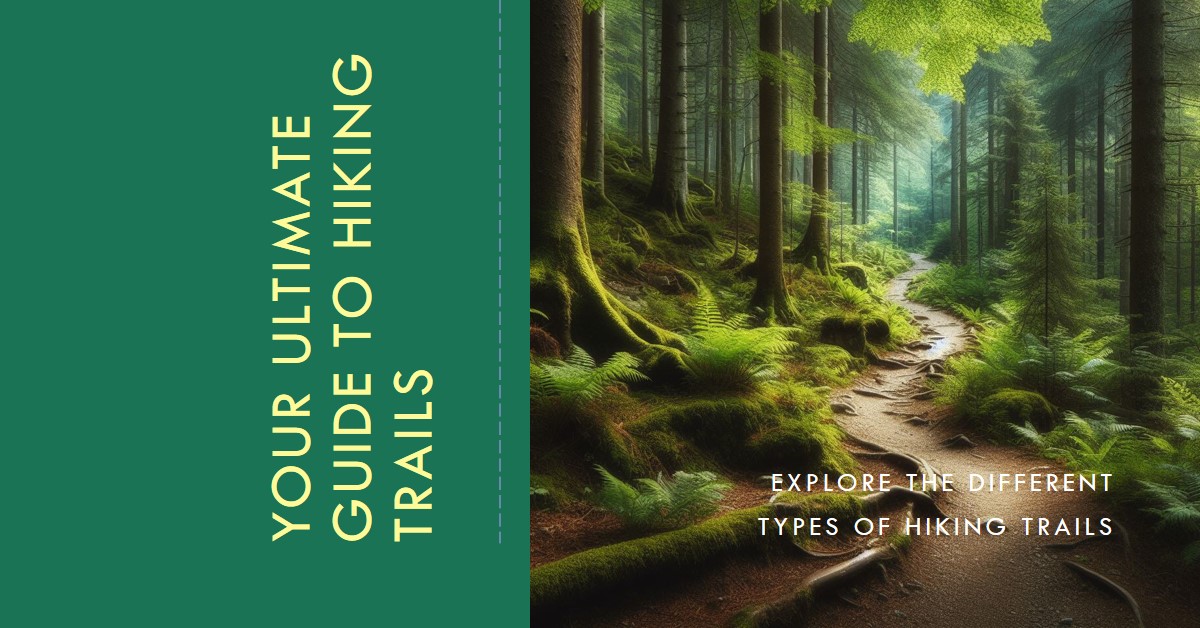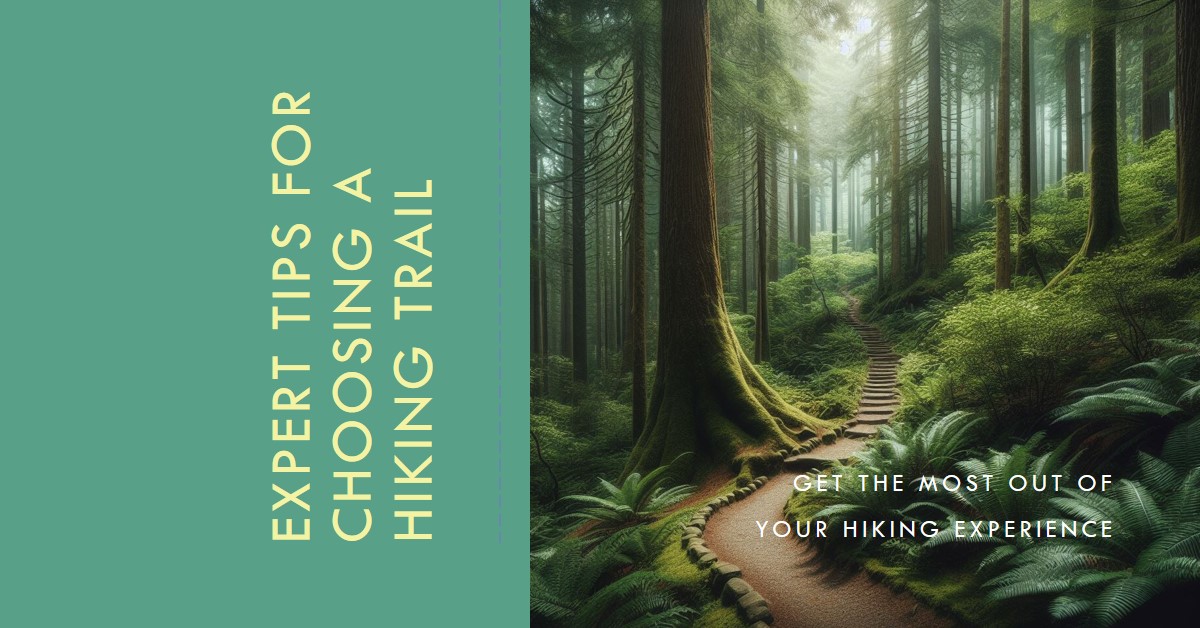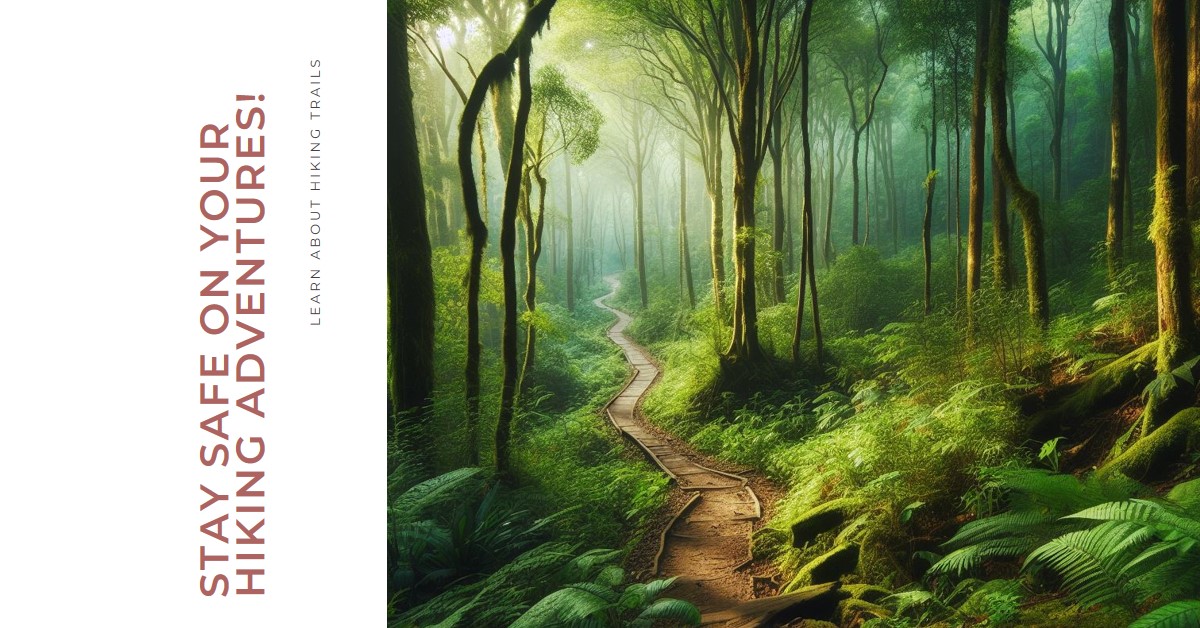Hiking and trekking are two popular outdoor activities that involve walking in nature.
Table of Contents
The Appeal Of Hiking And Trekking
Hiking and trekking are both incredibly appealing activities that offer a sense of freedom and a deep connection with nature. They provide adventure and physical challenge, allowing individuals to push their limits and discover new potentials. The allure lies in the ability to explore untouched landscapes, traverse rugged terrains, and witness breathtaking views.
Hiking and trekking offer an escape from the ordinary, enabling individuals to immerse themselves in the beauty of the natural world. These activities engage the senses, awakening a profound appreciation for the environment and instilling a sense of harmony with nature.
Whether it’s hiking through lush forests or trekking across majestic mountains, the experience is one that brings a sense of fulfillment and accomplishment. Both hiking and trekking offer a unique way to explore the great outdoors and foster a deeper connection with the world around us.
Key Differences Between Hiking And Trekking
Hiking and trekking may seem similar but have distinct differences. The terrain and difficulty level set them apart. While hiking usually involves trails and moderate difficulty, trekking takes place in remote areas with more challenging paths. Another discrepancy lies in duration and distance.
Hikes are usually shorter and cover less ground, while treks involve longer durations and cover more distance. Additionally, the equipment and resources required vary greatly. Hikers may only need basic hiking gear, whereas trekkers require specialized equipment like tents, sleeping bags, and cooking supplies.
Understanding these divergences is crucial when deciding whether to embark on a hike or a trek. Ultimately, it depends on personal preferences and skill levels. So, next time you’re planning an outdoor adventure, consider the disparities between hiking and trekking to make an informed decision.
Exploring Popular Hiking Trails
Hiking and trekking are both popular outdoor activities. Many famous hiking trails exist around the world, showcasing the beauty of nature. These iconic national parks and trails offer breathtaking views and thrilling adventures. From the rugged terrain of the Appalachian Trail in the United States to the stunning landscapes of the Inca Trail in Peru, hikers have a range of options to explore.
In Asia, the Annapurna Circuit in Nepal and the Great Wall of China are among the most sought-after trekking routes. Each trail offers a unique experience, from challenging terrains to encounters with diverse wildlife. Whether you prefer the solitude of hiking or the team spirit of trekking, these trails are sure to leave you with unforgettable memories.
So, pack your gear and embark on an adventure to discover the wonders of the great outdoors.
Tips For Planning A Hiking Trip
Planning a hiking trip? Here are some tips to make your journey successful. First, choose a trail suitable for your fitness level. Then, gather the essential gear and equipment needed for the hike. Don’t forget to prioritize safety precautions and emergency preparedness.
Stay alert and be aware of your surroundings at all times. Ensure you have a first aid kit and know basic first aid techniques. Additionally, inform someone about your trip and expected return time. Before starting the hike, check the weather forecast and plan accordingly.
Keep water, snacks, and a map handy. Moreover, wear proper hiking shoes and dress in layers for changing weather conditions. Remember to take breaks and pace yourself. Enjoy the journey and the beauty of nature along the way!
Discovering Remote And Uncharted Territories
Hiking and trekking offer opportunities to explore remote, uncharted territories and discover lesser-known routes in remote mountain ranges and wilderness areas. These activities allow you to immerse yourself in breathtaking landscapes, far away from the hustle and bustle of city life.
While hiking involves walking on established trails, trekking takes you off the beaten path, venturing into more challenging terrains. Whether it’s navigating through dense forests or conquering steep slopes, both activities offer a chance to connect with nature and challenge yourself physically.
Hiking and trekking are not only great for physical fitness but also provide mental rejuvenation and a sense of adventure. So, if you’re seeking to explore untouched beauty and experience the thrill of the unknown, pack your bags and embark on a hiking or trekking adventure in unfamiliar territories.
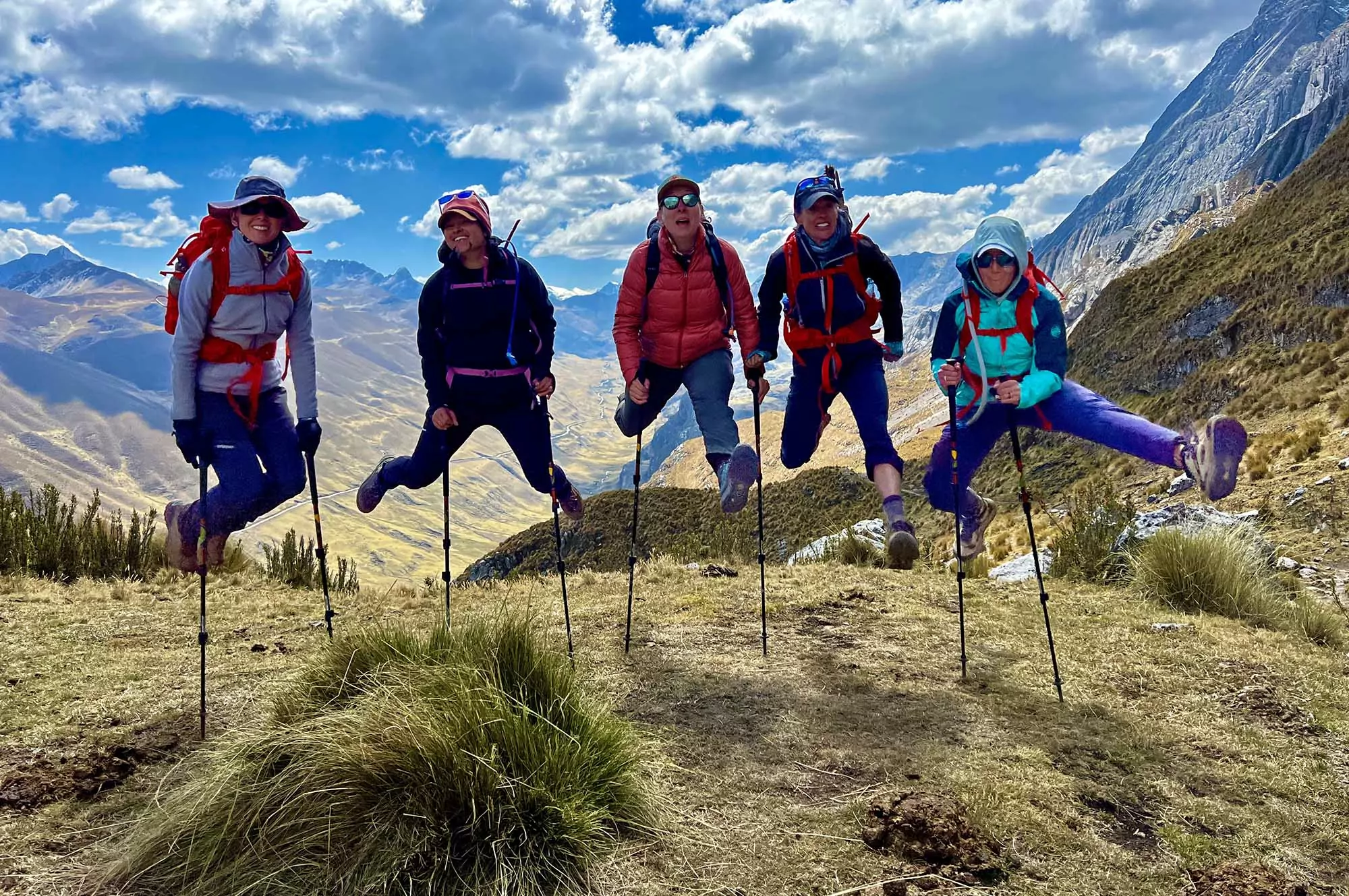
Credit: wildlandtrekking.com
Preparing For A Trekking Expedition
Preparing for a trekking expedition requires fitness and conditioning for extended hikes. You need to be physically fit and have the stamina to endure long hours of walking and climbing. It is also important to have specialized equipment and gear, such as proper footwear, backpacks, and clothing designed for rugged terrains.
Additionally, navigation and survival skills are crucial to ensure your safety during the trek. Knowing how to read maps, use a compass, and understand basic wilderness survival techniques can make a significant difference in challenging situations. Proper preparation and training are essential to make the most of your trekking experience and fully enjoy the beauty of nature.
So, make sure to focus on your fitness, invest in the right gear, and acquire the necessary skills before embarking on your next trekking adventure.
Considering Your Preferred Experience
Hiking and trekking offer distinct experiences. Hiking allows you to immerse yourself in scenic natural landscapes. It provides an opportunity to appreciate the beauty of mountains, rivers, and forests. The joy of conquering trails and reaching breathtaking viewpoints makes hiking appealing.
On the other hand, trekking adds thrill and isolation in the wilderness. It takes you on challenging expeditions, testing your physical endurance. Trekking allows you to explore remote and untouched territories, leaving behind the noise and distractions of the modern world.
So, whether you seek captivating vistas or desire the exhilarating adventure of venturing into the wild, choosing between hiking and trekking depends on your preferred experience. Embrace nature’s wonders or seek the thrill of the unknown – the choice is yours to make.
Choosing Based On Ability And Fitness Level
Hiking and trekking are popular outdoor activities that cater to different abilities and fitness levels. For beginners and recreational enthusiasts, hiking is a great choice. It offers moderate to low-intensity trails, allowing individuals to explore nature at their own pace.
Meanwhile, experienced adventurers and those with higher levels of physical fitness may opt for trekking. This activity involves more challenging terrains and longer distances. Trekking pushes individuals to their limits, offering a thrilling and demanding experience. Ultimately, the choice between hiking and trekking depends on one’s ability, fitness level, and personal preferences.
Whether you prefer a leisurely stroll in the woods or a challenging expedition, both activities provide a wonderful opportunity to connect with nature and challenge yourself physically. So lace up your shoes and hit the trails, whichever adventure you choose, you’re sure to have a memorable experience.
Frequently Asked Questions For Hiking Vs Trekking
What Is The Difference Between Hiking And Trekking?
Hiking and trekking are both outdoor activities that involve walking through natural environments, but they differ in duration and intensity. Hiking typically refers to shorter walks on well-marked trails, while trekking involves longer journeys through remote areas, often with uneven terrain and a higher level of difficulty.
Which Is Better For Beginners, Hiking Or Trekking?
For beginners, hiking is usually a better choice as it requires less physical fitness and technical skills compared to trekking. Hiking allows beginners to start with shorter and easier trails, gradually building endurance and confidence. Trekking, on the other hand, is more suitable for experienced hikers looking for a greater challenge and adventure.
What Equipment Do I Need For Hiking And Trekking?
For hiking, essential equipment includes comfortable hiking boots, a backpack, a water bottle, and appropriate clothing for the weather. Trekking requires additional gear such as a sleeping bag, camping stove, and camping tent. Both activities may also require navigation tools like a map and compass, as well as emergency supplies like a first aid kit.
Can I Hike And Trek In The Same Destinations?
Yes, many destinations offer both hiking and trekking opportunities. National parks, mountain ranges, and wilderness areas often have a variety of trails suitable for different levels of difficulty. Beginners can enjoy scenic hikes, while experienced trekkers can embark on multi-day adventures, exploring more secluded areas and reaching higher altitudes.
Conclusion
After examining the differences between hiking and trekking, it is clear that both activities offer unique experiences for outdoor enthusiasts. Hiking is more accessible and suitable for beginners, providing opportunities to explore nature on well-maintained trails. On the other hand, trekking offers a more challenging and immersive adventure, often involving multiple days of hiking through rugged terrains.
While hiking allows for shorter trips, trekking allows for a deeper connection with nature, self-discovery, and a sense of accomplishment. Whether you prefer the convenience and ease of hiking or the thrill and endurance of trekking, both activities provide physical and mental benefits while allowing you to appreciate the beauty of the great outdoors.
Remember to stay prepared, pack essential gear, and respect the environment on any outdoor adventure you choose. So, lace up your boots, grab your backpack, and embark on your next hiking or trekking journey. The mountains are calling!

